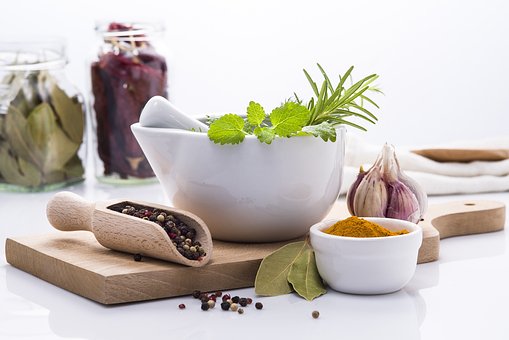Aloe Vera, Ayurvedic products and herbs, Bhumi Amla, Giloy
How to Increase Platelet Count Naturally
Did you know how to increase platelet count naturally without any side effects? This article will discuss how to naturally increase platelet counts in your blood.
Platelets, those minuscule blood cells integral to the blood clotting process, are produced in the bone marrow and circulate in the bloodstream. They play a vital role in preventing bleeding by forming clots in response to injuries or wounds.
When the platelet count is low, a condition known as thrombocytopenia can be attributed to various factors such as viral infections, autoimmune disorders, medications, and certain cancers. If you find yourself facing a low platelet count, also characterized by fatigue, easy bruising, and bleeding gums, there are natural approaches to boost your platelet count.
We must be physically healthy for the platelets to function normally. However, under certain conditions, the platelet count can drop dramatically, posing a risk to one’s overall health. Low platelet counts can cause not only minor bleeding from minor cuts and bruises but also catastrophic loss of blood inside the gut or around the nervous system.
That’s why it is crucial to know how to increase platelet count naturally. In this article, we will look at how you can increase platelet counts in your blood naturally.
Contents
- Causes of Low Platelet Count
- Guide to Increase Platelet Count Naturally
- 1) Aloe Vera to Combat Low Platelet Count
- 2) Green vegetables for treatment of thrombocytopenia
- 3) Papaya Leaf Extract for Platelet Increase
- 4) Pomegranate can significantly boost blood counts
- 5) Giloy or Guduchi may aid thrombocytopenia
- 6) Wheatgrass juice can be extremely beneficial
- 7) Berries may help with low platelet count
- 8) Amla for treatment of thrombocytopenia
- When to Consult a Haematologist?
- Conclusion:
- Frequently Asked Questions:
Causes of Low Platelet Count
Thrombocytopenia can result from conditions like leukemia, cancer treatments, alcoholism, liver cirrhosis, spleen enlargement, sepsis, autoimmune diseases, and specific medications.
It is crucial to collaborate with your healthcare provider to identify the root cause if a blood test indicates a low platelet count. While mild thrombocytopenia may be addressed with dietary changes and supplements, severe cases might necessitate medical intervention to prevent complications.
Guide to Increase Platelet Count Naturally
It is difficult to increase platelet count solely through diet and exercise. Certain conditions, such as dengue fever as well as viral fever, may necessitate the intravenous administration of platelets to regain normal platelet counts. That being said, if you’re looking for ways to naturally increase platelet counts, the list of herbs below should help.
1) Aloe Vera to Combat Low Platelet Count
Aloe vera, known for its numerous health benefits, can aid in increasing platelet count. It contains compounds that stimulate white blood cell production, contributing to a higher platelet count. Mix 2 tablespoons of aloe vera gel with a glass of water or fruit juice and consume twice a day for at least a week to observe improvements.
Buy Aloe Vera Online: Buy Now
2) Green vegetables for treatment of thrombocytopenia
Broccoli, spinach, and kale are examples of green vegetables that are high in antioxidants, vitamins, and minerals. While there isn’t direct evidence confirming their impact on platelet numbers, these nutrient-dense foods contribute to overall health. Various factors, including medical conditions and nutritional deficiencies, can influence platelet count. Including green vegetables in your diet is a positive step, but a comprehensive approach is essential.
3) Papaya Leaf Extract for Platelet Increase
This is the most well-known treatment for low platelet counts. If you want to know how to increase platelet count naturally during dengue fever, drinking a glass or two of papaya leaf extract regularly can help. While research on its impact is promising, further studies are required for conclusive evidence. Papaya leaf extract can be consumed in various forms, such as teas, juices, or supplements.
However, cautious use is advised, particularly for individuals with health complications or those on medications. To incorporate papaya leaf extract, mix 2 tablespoons of the juice with 1 tablespoon of honey and consume twice a day for at least a week to observe an improvement in platelet count.
Buy Papaya Leaf Online: Buy Now
4) Pomegranate can significantly boost blood counts
Pomegranate can assist you in learning how to quickly and naturally increase your platelet count. Pomegranate, with its antioxidants and compounds like flavonoids and polyphenols, is suggested to promote blood platelets. While studies indicate potential benefits, conclusive evidence is lacking. Studies often focus on specific parts of pomegranate extract rather than the whole fruit, making it challenging to determine its overall impact on platelet count.
Buy Pomegranate Seeds Online: Buy Now
5) Giloy or Guduchi may aid thrombocytopenia
This is a popular home remedy for increasing platelet count, especially if they are infected with dengue. Giloy has anti-inflammatory, anti-diabetic, anti-allergic, antioxidant, antispasmodic, as well as antiparasitic characteristics that aid in immunostimulatory activity, which increases platelet count.
Buy Giloy Online: Buy Now
6) Wheatgrass juice can be extremely beneficial
While wheatgrass contains nutrients like vitamin K and chlorophyll, scientific evidence supporting its significant impact on platelet count is limited. Seeking medical advice is crucial for those with low platelet counts or other blood-related issues. Mix 2 tablespoons of wheatgrass juice with a glass of water or fruit juice and consume twice a day for at least a week to observe potential improvements.
Buy Wheatgrass Online: Buy Now
7) Berries may help with low platelet count
Raspberries, Goji Berries, Blackberries, Blueberries, and Strawberries are high in antioxidants and thus excellent fruits for increasing platelet count. A clinical study found that berries, when consumed in moderation, have a positive effect on platelet count and HDL (also known as “good cholesterol”) because they are high in polyphenolic compounds, which boost platelets.
Buy Blackberries Online: Buy Now
8) Amla for treatment of thrombocytopenia
Amla, another name for the Indian gooseberry, is a fruit that is rich in antioxidants and vitamin C. It serves as a natural immune booster and stimulates white blood cell and platelet production. Mix 2 tablespoons of amla juice with a glass of water or fruit juice and consume twice a day for at least a week to observe an improvement in platelet count.
Buy Amla Online: Buy Now
When to Consult a Haematologist?
For thrombocytopenia, prompt medical treatment is crucial to prevent severe complications. Seek immediate medical attention if you experience excessive bleeding, bleeding from the nose or mouth, headaches from minor injuries, or worsening easy bruising. Consulting a healthcare professional is vital for a proper diagnosis and treatment, which may involve addressing the underlying cause of platelet transfusions.
Conclusion:
Certain foods and supplements may help to increase platelet count naturally. However, if you continue to experience thrombocytopenia symptoms, inform your doctor. If your platelet count is extremely low, you will almost certainly require medical attention to avoid severe illnesses.
Frequently Asked Questions:
1. How to increase platelets quickly?
- Consume more leafy vegetables.
- Include fatty fish in your diet.
- Increase folate intake.
- Avoid alcoholic beverages.
- Add citrus fruits to your meals.
- Eat iron-rich foods.
- Consider chlorophyll supplements.
- Refrain from taking vitamin E and fish oil supplements.
2. Which food increases platelets?
- Milk for protein and calcium.
- Green leafy vegetables for overall nutrition.
- Papaya leaf extracts for potential health benefits.
- Pomegranates for potential platelet promotion.
- Pumpkins for nutrient-rich support.
- Wheatgrass for its plant-based nutritional properties.
3. What occurs in the case of low platelet counts?
- Increased risk of bleeding, bruising, and spontaneous hemorrhage.
- Easy bruising and prolonged bleeding.
- Potential internal bleeding.
- Menstrual irregularities in women.
- Severe cases can lead to life-threatening organ hemorrhage.
- Fatigue and weakness due to chronic low platelet counts.
- A medical professional’s advice is essential for an accurate diagnosis and course of therapy.
4. What is a normal platelet count?
- 150,000 to 450,000 platelets per microliter of blood are the normal range.
- Counts below 150,000 may indicate thrombocytopenia.
- Counts above 450,000 may suggest thrombocytosis.
- Individual health conditions can influence these values.
- Consultation with a healthcare professional is recommended for concerns about platelet counts.
Also Read:
1) Benefits of Papaya Leaf.
2) Fennel Seeds Benefits.
3) Benefits of Mint Leaves.
4) Herbs to Consume Daily.
5) Lavender Essential Oil Benefits.
For more details on herbs & their remedies related to educational videos subscribe to our channels
https://www.youtube.com/@trustherb
https://www.instagram.com/trustherb.india/


